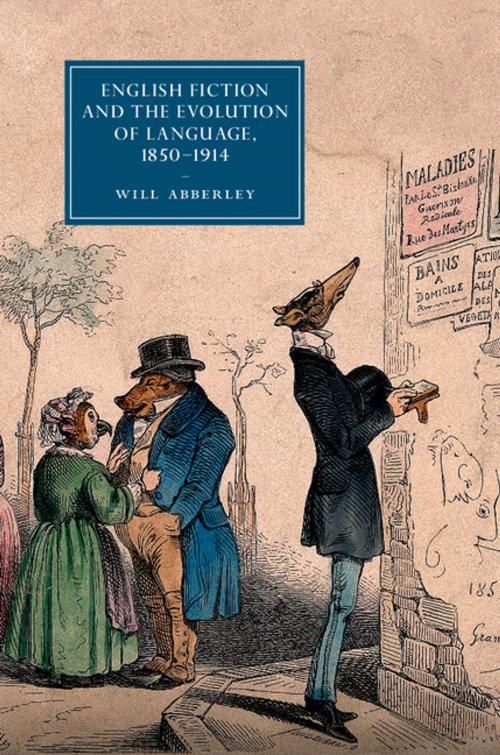English Fiction and the Evolution of Language, 1850–1914
Fiction & Literature, Literary Theory & Criticism, British, Nonfiction, Science & Nature, Science| Author: | Will Abberley | ISBN: | 9781316290262 |
| Publisher: | Cambridge University Press | Publication: | May 27, 2015 |
| Imprint: | Cambridge University Press | Language: | English |
| Author: | Will Abberley |
| ISBN: | 9781316290262 |
| Publisher: | Cambridge University Press |
| Publication: | May 27, 2015 |
| Imprint: | Cambridge University Press |
| Language: | English |
Victorian science changed language from a tool into a natural phenomenon, evolving independently of its speakers. Will Abberley explores how science and fiction interacted in imagining different stories of language evolution. Popular narratives of language progress clashed with others of decay and degeneration. Furthermore, the blurring of language evolution with biological evolution encouraged Victorians to re-imagine language as a mixture of social convention and primordial instinct. Abberley argues that fiction by authors such as Charles Kingsley, Thomas Hardy and H. G. Wells not only reflected these intellectual currents, but also helped to shape them. Genres from utopia to historical romance supplied narrative models for generating thought experiments in the possible pasts and futures of language. Equally, fiction that explored the instinctive roots of language intervened in debates about language standardisation and scientific objectivity. These textual readings offer new perspectives on twenty-first-century discussions about language evolution and the language of science.
Victorian science changed language from a tool into a natural phenomenon, evolving independently of its speakers. Will Abberley explores how science and fiction interacted in imagining different stories of language evolution. Popular narratives of language progress clashed with others of decay and degeneration. Furthermore, the blurring of language evolution with biological evolution encouraged Victorians to re-imagine language as a mixture of social convention and primordial instinct. Abberley argues that fiction by authors such as Charles Kingsley, Thomas Hardy and H. G. Wells not only reflected these intellectual currents, but also helped to shape them. Genres from utopia to historical romance supplied narrative models for generating thought experiments in the possible pasts and futures of language. Equally, fiction that explored the instinctive roots of language intervened in debates about language standardisation and scientific objectivity. These textual readings offer new perspectives on twenty-first-century discussions about language evolution and the language of science.















